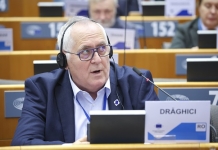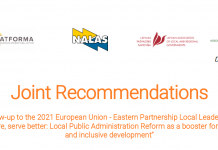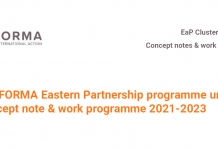The time has come to turn waste into a useful resource by increasing the re-use, repairing, refurbishing and recycling of materials and products, Mariana Gâju, Mayor of Cumpăna (PES/RO) has said. She urged for an ambitious review of EU waste targets and called on the European Commission to explain how yesterdays announcement to withdraw current proposals and present new and improved ones next year would work in practice. Local and regional authorities are key drivers in the implementation and evaluation phases of waste policy, and that is why we need a clear and reliable policy framework at EU level, she emphasised.
Her draft opinion on Towards a circular economy: review of EU waste legislation, which reacts to the so-called circular economy package – where the European Commission proposes a 70% target for recycling of municipal waste and 80% target of recycling packaging waste by 2030 – was backed by an overwhelming majority of Committee of the Regions Environment, Climate Change and Energy Commission (ENVE) members last week. Presenting the Commissions work programme for 2015 yesterday, the European Commission First Vice-President Frans Timmermans confirmed speculations that the circular economy proposals were to be reviewed by the Commission and that a new proposal would be more ambitious and allow to boost the circular economy by linking it with the Juncker investment plan.
Mariana Gâju welcomed the fact that the circular economy was still considered important, but asked for more clarity about the next steps. In her opinion based on the current proposals, she advocates the introduction of a European-wide definition of municipal waste based on the kind of waste that is collected, to be used by all Member States and local and regional authorities, as a common basis for comparing the effectiveness of different waste policies.
The opinion also stresses the need for a single, clear and output-based calculation method for recycling performance. A review of the eco-design directive, accompanied by incentives to fully implement the polluter pays principle, and a reinforcement of the principle of extended producer responsibility are all considered key elements for moving towards a zero-waste society. In this perspective, the rapporteur also proposes setting binding waste prevention targets, and stresses the key role of local and regional authorities in green public procurement, which could be helped by setting mandatory targets in this respect.
Last but not least, the draft opinion welcomes the European Commissions proposal to introduce an early warning system that monitors compliance and supports Member States which are at risk of missing the targets.









